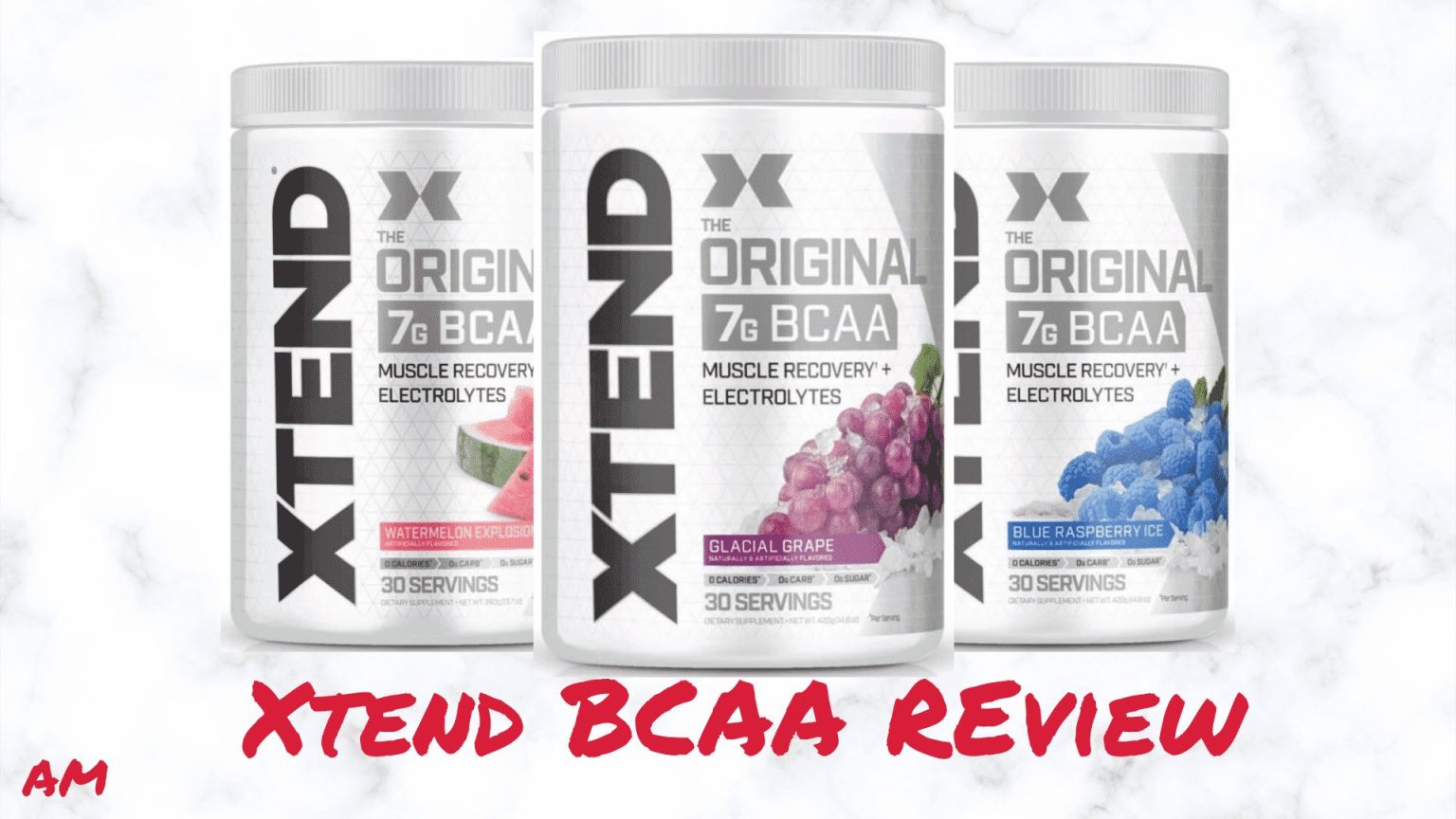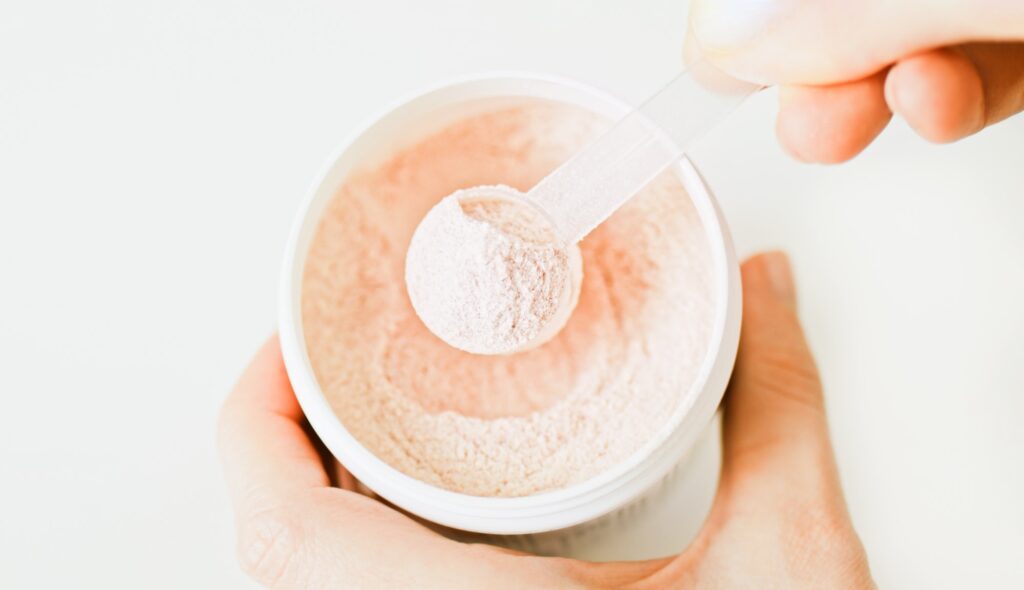If you’ve been looking to gain muscle mass or even improve your overall health, you’ve probably come across the term BCAA’s (branched-chain amino acids). BCAA supplements are popular in the bodybuilding, health, and sports nutrition communities for more than a few reasons. In particular, these essential amino acids can help boost muscle growth and aid in muscle recovery.
So, let’s dig a bit deeper into this topic. What exactly are BCAA’s? When should you use them? And what are the benefits of BCAA’s, besides muscle growth?
What Are BCAA’s?
BCAA’s are branched-chain amino acids, including leucine, valine, and isoleucine, known as “essential amino acids.” This means that the body can’t make them, so they must be consumed through your diet. As you might already know, amino acids are the building blocks of the body, contributing to muscle protein synthesis and maintenance and regeneration of other tissue.
So, what’s the big deal about BCAA’s?
BCAA’s actually bypass the liver, which differs from regular amino acid metabolism. This means that these amino acids can be used almost right away and usually by active metabolic tissue, such as muscle. Thus, BCAA’s can provide another fuel source for muscle tissue. On top of this, BCAA’s can also help the body stay in an anabolic (building) state as opposed to a catabolic (tissue breakdown) state, which can aid in muscle recovery.
Interestingly, leucine has been shown to inhibit the breakdown of muscle tissue and contribute to increased muscle protein synthesis—meaning this particular amino acid can help build muscle and maintain lean muscle muscle even through restrictive dieting, weight loss, or intense exercise.

Why Should You Use BCAA’s?
If you’re wanting to build muscle and prevent muscle damage, monitoring your protein intake is key. As previously mentioned, protein is essential for muscle growth and tissue maintenance. However, the benefits of BCAA’s go beyond muscle growth and include:
1. BCAA’s can help prevent fatigue during intense or long exercise sessions.
BCAA’s have the ability to prevent central and peripheral fatigue. Peripheral fatigue happens when your muscle tire out or you begin to experience muscle soreness. Since BCAA’s can help fuel your muscles during a workout once you’ve run out of muscle glycogen stores, they can prevent this from happening.
Central fatigue happens when your brain tires. However, BCAA’s block tryptophan, another amino acid which can lead to feelings of sleepiness caused by the release of serotonin, from entering the brain. This way, you can push much harder during those intense training sessions!

2. BCAA’s can improve exercise performance.
From what’s already been said above, this one is likely fairly obvious. One study even found how branched-chain amino acids improved VO2max, suggesting it can improve endurance capacity. For elite athletes, this could mean huge gains and huge advancements when it comes to placing in competitive events.
3. BCAA’s can improve the function of the immune system.
It’s not all about muscle growth! The effects of BCAA’s also include enhancing immune function by providing fuel to immune cells, specifically in the gut. This means that immune cells are able to regenerate faster, which helps them continue to protect your body from any foreign invaders.
4. BCAA’s protect skeletal muscles.
Your skeletal muscle is what makes up lean tissue in the body, helping you look toned. Yet, BCAA’s, pre-workout and post-workout, have shown to have beneficial effects when it comes to reducing muscle damage. In fact, as previously mentioned, they do quite the opposite, helping amp up overall muscle protein synthesis.

5. BCAA’s might help you live longer!
When it comes to regular ol’ health and wellness, BCAA’s can be very beneficial, even helping to treat liver disease. They also increase the production of new mitochondria, which are the powerhouses of the cells. Additionally, researchers have found branched-chain amino acid supplementation, or sufficient consumption of BCAA’s through your diet, can improve the production of glutamate and GABA, which are very beneficial for brain health and general cognition.
When Should You Use BCAA’s?
BCAA’s can be taken anytime. More specifically, you may choose to take them before, during, or after a workout to increase muscle growth and decrease muscle protein breakdown.
They can also be used as a dietary supplement if you notice you’re not gaining enough BCAA’s via your regular diet or you’re on a high protein diet. Yet, if this is the case, you can also consume more BCAA-containing foods including dairy, fish, eggs, and meat.
BCAA powder can also be found in many forms. In fact, if you’re already taking whey protein, BCAA powder can complement it quite well, providing a good balance of different amino acids. Like whey protein, you can also find different flavors or BCAA powder.
What is a Good Dosage of BCAA’s? Any Side Effects?

See our full review of the popular Xtend BCAA here
The recommended BCAA dosage is about four to 20 grams per day. Yet, consuming about 2000 milligrams of BCAA at one time has shown to increase the blood concentrations of BCAA, so dosage may vary depending on your body and health. Additionally, BCAA amount may vary depending on whether you’re male or female, since there may be differences in protein requirements. In most studies, a daily dosage was taken across the span of the day rather in one straight dose.
BCAA can also be taken in a fasted state, helping to preserve muscle mass and prevent muscle breakdown.
According to WebMD, BCAA side effects may include:
- Fatigue
- Loss of coordination
- Bloating
- Diarrhea
- Nausea
In fact, BCAA’s aren’t recommended for those who are pregnant or breastfeeding, children, those diagnosed with ALS, those with diabetes, those with branched-chain ketoaciduria, and those who have recently had surgery.
Did You Know?
- BCAA’s aren’t made by the body, meaning you must obtain it from the food you eat or via supplements. Popular foods that are high in BCAA’s include beef, chicken, fish, eggs, chickpeas, and lentils.
Final Thoughts…
BCAA’s are an essential part of anyone’s diet, whether the goal is to gain muscle or not. However, they are even more important if you’re looking to lean out or build muscle. There are many different ways you can obtain more BCAA’s via your diet, such as through the food you eat or specific supplements. Find what works for you and your goals, and stick with it!

